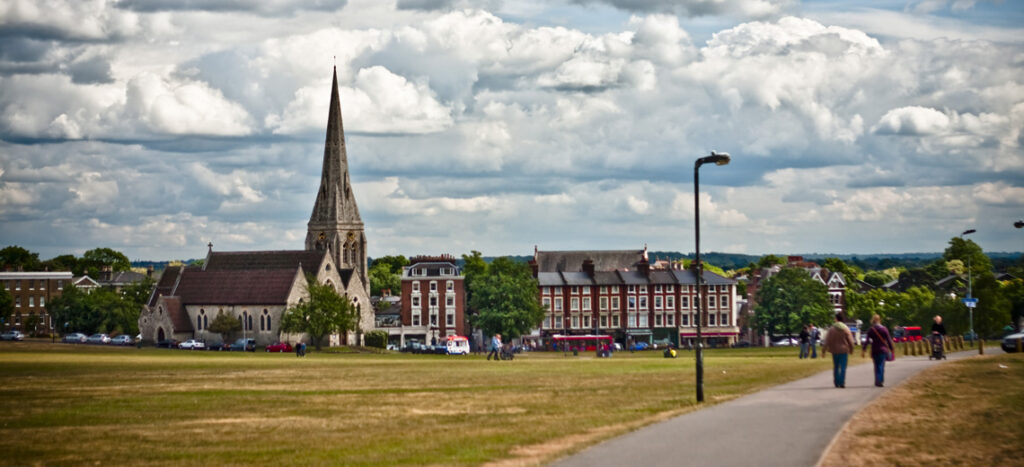Blackheath is called Blackheath due to its historical association with the color black. Blackheath is likely named for the dark, heath-covered land it once was. “Black” refers to dense vegetation, while “heath” indicates the type of open, uncultivated land.
However, have you ever questioned the meaning behind the name “Blackheath” for this stunning location? Indeed, learning about a place is possible if you’re eagerly curious about it.
Imagine a gorgeous location surrounded by history, greenery, and rumors for years. That’s Blackheath!
Now, Why Is Blackheath Called Blackheath? In this article, we’ve settled all the unsettling things regarding the Blackheath. You disclose it.
Historical Background of Blackheath

The alluring area of Blackheath has influenced its identity for decades with its rich history and significance.
Blackheath has deep historical origins that are important to the community gathering spot. Here, many individuals with varieties of backgrounds gathered to rejoice, exchange goods, and participate in social activities.
It served as the center of social interaction, creating cherished moments and inherited customs.
The term “Blackheath” is no longer merely a designation. It holds a significant link to the past. Back then, names had deeper connotations that captured the character of a place.
Why is Blackheath Called Blackheath?
Every place has an interesting story for its name and culture. Blackheath is no exception. Although the place has vast green space at present, it has an interesting story behind its name.
So, why is Blackheath called Blackheath – do you know its mysterious fact?
Well, Blackheath is called Blackheath because of its physical characteristics. The name “Blackheath” comes from the Old English word “blaec,” which means black or dark. The “heath” means heath or open uncultivated land.
This name was given to the area due to the presence of dark-colored soil and the heathland that covered the area. The soil in Blackheath contains a high amount of iron and peat. The materials give the place a darker color compared to the surrounding areas.
Additionally, the open land was predominantly covered in heather and other shrubs, characteristic of a heath. Hence, the combination of the dark soil and the heathland led to the name “Blackheath.”
Theories and Speculations of Blackheath
Numerous concepts have emerged over time on Blackheath. Almost every concept has increased the enchantment of the listeners with the captivating story.
So, let’s explore the fascinating world of hypotheses and conjectures that surround the name “Blackheath”‘.
Folklore and Legends
The story of Blackheath is shaped by folklore in the same manner as other locations.
Common folk tales have developed over time, weaving tales that provide fascinating explanations for the name’s genesis.
These tales frequently feature legendary characters, mystical occurrences, or old rituals that have come to be associated with the history of the region.
Local Customs and Folklore
Traditions and customs within the community have been passed down from generation to generation, and they occasionally contain hidden clues to
Geography of Blackheath
The Blackheath has individual physical attributes giving life to its identity. Its vast expanse of open grassland and elevated position offer sweeping views and an air of majesty.
These geographical features play an integral role in shaping the name Blackheath. That’s because the elevated vantage points of Blackheath held strategic importance.
The presence of significant natural landmarks or unique characteristics adds another layer of intrigue, holding the potential to be connected to the origins of the name.
The Role of Vegetation and Soil
The vegetation and soil that thrive upon Blackheath’s expanse are vital clues to unraveling its name. Dark-colored flora and rich soil might have inspired the name “Blackheath.”
This aspect prompts exploration into how the local environment contributed to the naming of this historic site.
References found in historical documents or literature describing the landscape become guiding beacons in our quest to fathom the essence of the name.
Cultural and Historical Events
Discovering the major historical events of Blackheath can provide crucial insights into its name.
Blackheath’s sprawling expanse has borne witness to pivotal moments in history. It includes the Peasants’ Revolt and military endeavors, each potentially influencing the name’s genesis.
We gain a deeper understanding of Blackheath’s historical significance. All we need to do is to forge the connections between these significant moments and the name’s origin.
Local Myths and Legends
Enveloped within the tapestry of Blackheath’s rich heritage are local myths and legends passed down through generations.
These captivating stories offer a glimpse into how they might have contributed to naming this storied landscape, preserving the spirit of the past.
Embracing the cultural significance of these myths allows us to grasp how they have molded the community’s identity and connection to the land.
FAQs
No, Blackheath is not named after the Black Death. The name “Blackheath” is believed to be derived from the Old English words “bleak” or “blaec,” which means “black” or “dark.” It’s likely referring to the dark-colored soil or vegetation found in the area.
Yes, there are several local myths and legends related to Blackheath. Some of these stories might explain the origin of the name, with folktales and traditions
The name “Blackheath” is likely linked to the area’s physical features, referring to the dark, dense vegetation covering the uncultivated land.
While there’s no specific historical event directly influencing the naming of Blackheath, its name likely originated from the area’s natural characteristics – the dark, dense vegetation (“black”) on the uncultivated land (“heath”).
There are no definitive written records or historical documents explaining the origin of Blackheath’s name. It is generally believed to be descriptive, referring to the dark vegetation on the heathland.
The meaning of “Blackheath” may have changed over the centuries, influenced by local folklore, linguistic shifts, and historical events.
Yes, other places with similar names, like “Blackheath” or “Bleak Heath,” are found in different regions. Exploring these similar names might illuminate common themes or associations with such geographical features.
Understanding the origin of Blackheath’s name provides insights into its historical landscape and natural features. Besides, it also highlights its ecological and cultural past.
Also, it connects us to the region’s untamed history and allows people to interact with the place.
Conclusion
Our expedition into the origins of Blackheath’s name is a captivating voyage. It unveils the history, geography, and folklore layers that have shaped its identity.
So, why is Blackheath called Blackheath?
The true origin may forever elude us. But, the most plausible explanation emerges, reflecting the depth of significance this land carries.
Encouraging further exploration of Blackheath’s history and folklore will restore and cherish the heritage.

